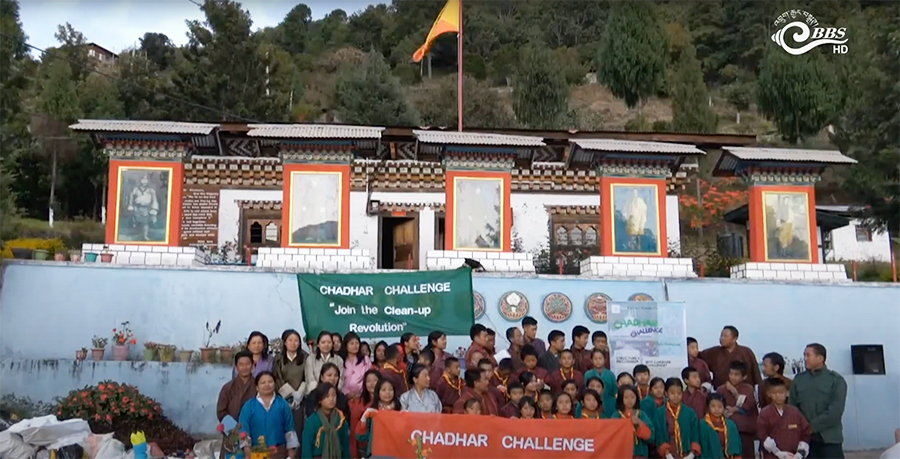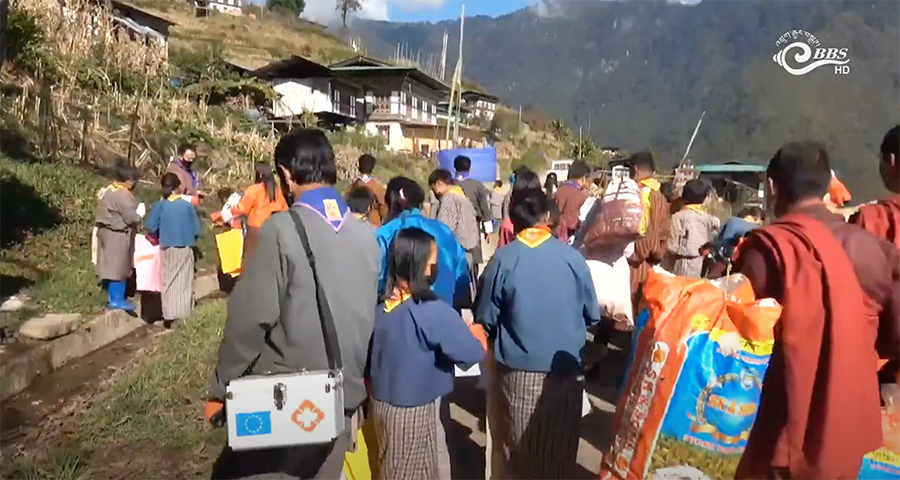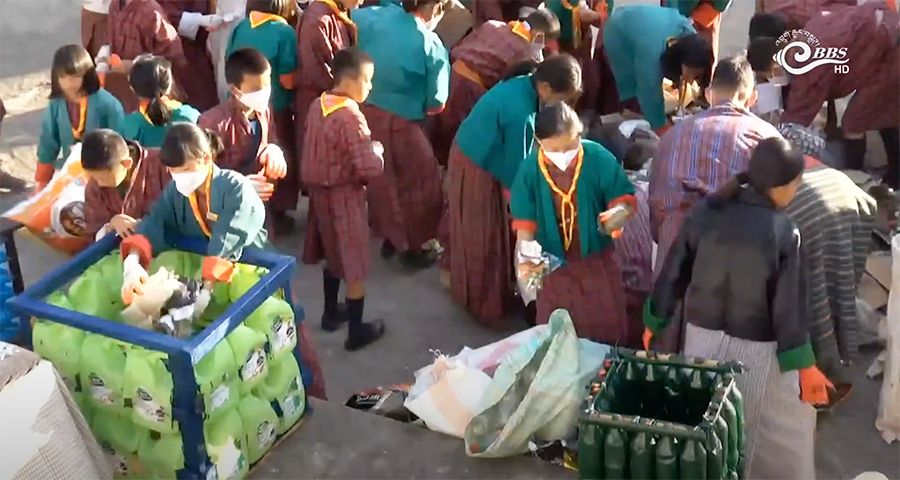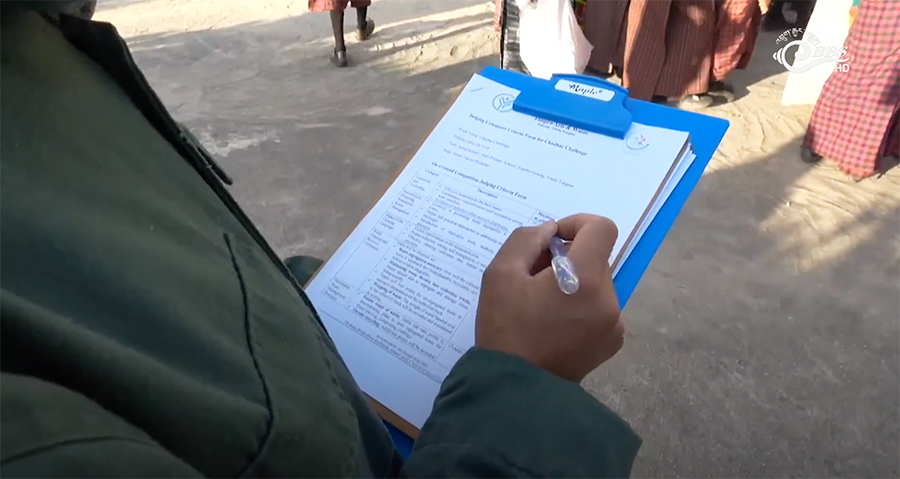
Most people view landfills as the final destination for waste. However, waste can be transformed into valuable resources and even generate substantial income. To explore how primary schools in the lower region of Trashi Yangtse have implemented waste management, a private waste management company organised a three-day Chadar Challenge in Doksum.
Five primary schools—Tshangphuchen, Shali, Thragom, Tongmijangsa, and Doksum—participated in the competition, showcasing innovative waste management practices.
 The students involved local community members in collecting waste from their areas and used various skills to raise public awareness about waste management. Each school presented their methods of waste segregation, creative use of waste, and future plans for managing waste to the judges.
The students involved local community members in collecting waste from their areas and used various skills to raise public awareness about waste management. Each school presented their methods of waste segregation, creative use of waste, and future plans for managing waste to the judges.
 The judges evaluated the presentations based on set criteria. The three-day Chadar Challenge concluded on Saturday.
The judges evaluated the presentations based on set criteria. The three-day Chadar Challenge concluded on Saturday.
 “Today, I learned how to segregate waste. If we do not take care, it will affect our environment. I also learned that waste can be beneficial if managed properly. Degradable waste can be used in our kitchen gardens, while non-degradable waste can be sold to scrap dealers,” said Tenzin Damdrel, a student of Shali PS, Khamdang Gewog.
“Today, I learned how to segregate waste. If we do not take care, it will affect our environment. I also learned that waste can be beneficial if managed properly. Degradable waste can be used in our kitchen gardens, while non-degradable waste can be sold to scrap dealers,” said Tenzin Damdrel, a student of Shali PS, Khamdang Gewog.
Rinzin D. Dolkar, another student of Shali PS said, “We used to collect waste, and with the plastic, we even made plastic bags to carry. We also sold waste and used the money to purchase soap and hand brooms for our school.”
“With plastic bottles, we made flowers for decoration and flowerpots. For plastic bags, since they are often used for kitchen purposes, we washed them and, after discussing with teachers, made and reused them,” said Sherub Wangyel, a student of Tshangphuchen PS, Toedtsho Gewog.
Local scrap dealers were also involved in the programme, purchasing the collected waste. Going forward, the schools will sell their waste to these dealers.
“They are watching what we are doing right now, and they will understand. After their studies, they will become part of the system—some as teachers and some as leaders. This will enable them to create effective waste management systems in the future. That is why I focus on primary-level students,” said Tshering Dorji, Yangzo Arts and Wastage, Doksum.
The winners were awarded cash prizes, and all participants received certificates.
The three-day programme was organised by Yangzo Arts and Wastage in collaboration with Save the Children, as part of the EcoVation project funded by the European Union.
Sonam Darjay, Tashi Yangtse
Edited by Sherub Dorji










